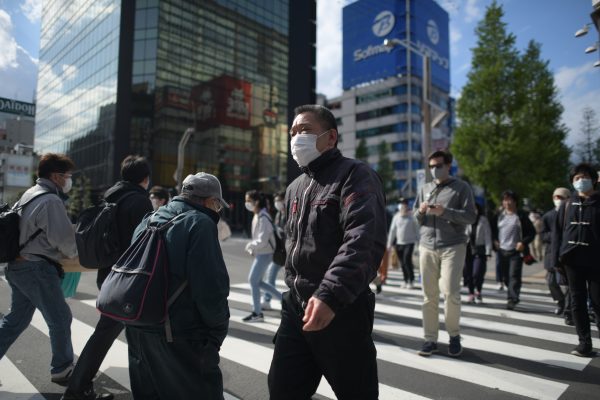Japan is one country that has not accepted this reality.
Prime Minister Shinzo Abe came into power in 2012 with a platform to revitalise the economy. Aided by tid-bits of supportive policies, the Japanese economy grew in nominal terms every year — there was a small real GDP dip in 2014 — and the labour market progressively tightened. Although opinions differ on Abenomics, Abe has become Japan’s longest-serving prime minister. He does not seem ready to let the pandemic upend whatever claims he may have to the country’s modest economic success.
This partly explains why the Japanese government was so slow to respond to the coronavirus outbreak. Public health officials limited testing to people with symptoms who came to the hospital, but to their credit this was coupled with cluster tracing and isolation. This strategy worked until the number of untraceable cases started rising.
But the initiative to deal with the rise in infections came not from Abe but from Tokyo’s Governor Yuriko Koike. She requested the public to stay home, threatening to lock down the city if things got out of control, and she urged the government to declare a state of emergency.
It was only with some reluctance that Abe declared a state of emergency on 7 April, but he did not use his authority to close down anything. He only requested businesses and individuals to voluntarily reduce normal activities. Days were reportedly wasted as the national government negotiated with Koike to limit the scale of emergency restrictions that she wanted. Ultimately, Abe confined the state of emergency to seven prefectures experiencing a surge in infections.
The governors of Kyoto and Aichi, deeming these measures inadequate, introduced their own emergency restrictions. On 16 April, Abe complied with their petition by extending the state of emergency to all of Japan.
The government’s ‘stimulus’ package announced on 7 April was also wholly inadequate. Its headline amount, nearly 110 trillion yen (US$1 trillion) or some 20 per cent of GDP, is deceptive — it includes a hodgepodge of miscellaneous items, including many outside the national budget. But only about 12.2 trillion yen (US$113.5 billion) represents key spending to deal with the pandemic, such as cash transfers to individuals, employment subsidies to employers and low interest loans to businesses.
On 20 April, this was raised to about 20 trillion yen (US$186 billion) by replacing means-tested cash transfers with transfers to all households. This shows that the government is considering the non-business portion of the fiscal package, not as a redistribution of economic hardship, as they should, but as a stimulus which will likely prove futile.
The insufficient fiscal response reflects the government’s failure to understand the role of economic policy during a pandemic. Japan must accept that the only short-term solution is to limit the community spread of infections, which involves temporarily curtailing economic activities. The best analogy is to think of it as a huge negative wealth shock. This has already happened and there is nothing anyone can do about it. An attempt to stimulate the economy would be futile. Once this is accepted, then the role of economic policy becomes clear — to extend economic lifelines to individuals and businesses until economic activities can resume.
Japan’s timid fiscal response also reflects its precarious public finances. Japan’s government debt, now approaching 250 per cent of GDP, is unsustainable, given the rapid pace of population ageing and an expected fall in the labour force. So how to finance additional spending is a relevant issue.
Here, we must reiterate the nature of government support during a pandemic. Given that, for businesses, the purpose of government support is to help keep viable businesses from going bankrupt, corporate support should take the form of low interest loans, which will be repaid from future profits. For households, the purpose is to help to redistribute the economic pain, from those directly affected to those who continue to enjoy a steady stream of income. The goal is social justice. The only way to achieve this is through a future increase in progressive income taxation.
A silver lining is that the economy’s productive capacity and financial sector remain unimpaired. To ensure that recovery is robust— when it does take place — the government must keep the hibernating economy unimpaired.
This is why Abe should not be so timid in providing support to viable firms and adversely affected individuals. If he wants to hold on to the legacy of economic success, he must take bold measures — paradoxically — to shut down the economy and engage in uninhibited fiscal spending. Such spending, consisting of loans to businesses to be paid out of future profits and cash transfers to households financed by future progressive income taxes, is what Japan needs to secure a vigorous economic recovery, hopefully in the not too distant future.
Shinji Takagi is Distinguished Research Professor at the Asian Growth Research Institute (AGI), Kitakyushu, and Professor Emeritus of Economics at Osaka University. He was Assistant Director of the Independent Evaluation Office at the International Monetary Fund from 2013–2018.
This article is part of an EAF special feature series on the novel coronavirus crisis and its impact.

